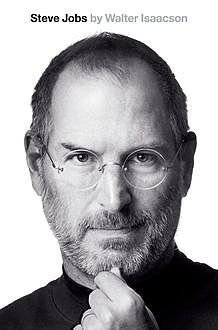Steve Jobs: A Biography
- James Perezhar citeretfor 7 år sidenTu mundo se había partido y después se detuvo, a la espera de volver a articularse en torno a lo que fuera que eligieras a continuación
- Елизавета Петроваhar citeretfor 3 år siden“I began to realize that an intuitive understanding and consciousness was more significant than abstract thinking and intellectual logical analysis,”
- Lukahar citereti gårJobs liked to work. He also had a newspaper route—his father would drive him when it was raining—and during his sophomore year spent weekends and the summer as a stock clerk at a cavernous electronics store, Haltek.
- Lukahar citereti gårEven before Jobs started elementary school, his mother had taught him how to read. This, however, led to some problems once he got to school. “I was kind of bored for the first few years, so I occupied myself by getting into trouble.” It also soon became clear that Jobs, by both nature and nurture, was not disposed to accept authority. “I encountered authority of a different kind than I had ever encountered before, and I did not like it. And they really almost got me. They came close to really beating any curiosity out of me.”
- Lukahar citereti går“He was not an educated man, but I had always thought he was pretty damn smart. He didn’t read much, but he could do a lot. Almost everything mechanical, he could figure it out.” Yet the carbon microphone incident, Jobs said, began a jarring process of realizing that he was in fact more clever and quick than his parents. “It was a very big moment that’s burned into my mind. When I realized that I was smarter than my parents, I felt tremendous shame for having thought that. I will never forget that moment.” This discovery, he later told friends, along with the fact that he was adopted, made him feel apart—detached and separate—from both his family and the world.
- Lukahar citereti gårJobs recalled the incident vividly because it was his first realization that his father did not know everything.
- Lukahar citereti gårJobs said that his appreciation for Eichler homes instilled in him a passion for making nicely designed products for the mass market. “I love it when you can bring really great design and simple capability to something that doesn’t cost much,”
- Lukahar citereti går“I wasn’t that into fixing cars,” Jobs admitted. “But I was eager to hang out with my dad.”
- Lukahar citereti går“I thought my dad’s sense of design was pretty good,” he said, “because he knew how to build anything. If we needed a cabinet, he would build it. When he built our fence, he gave me a hammer so I could work with him.”
- Lukahar citereti forgårsThen I read something that one of my heroes, Edwin Land of Polaroid, said about the importance of people who could stand at the intersection of humanities and sciences, and I decided that’s what I wanted to do.”
fb2epub
Træk og slip dine filer
(ikke mere end 5 ad gangen)


